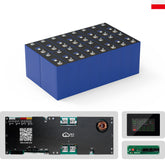Is Solar really worth it
Is Solar Power Actually Worth It
As homeowners and businesses search for cleaner and more cost-effective energy solutions, solar power has emerged as a leading contender. But is it truly a good investment? When evaluating energy alternatives, understanding the real benefits and costs is crucial. Solar power offers a promising solution for reducing carbon footprints and cutting electricity bills, but the decision to switch depends on various factors. In this article, we’ll explore whether solar power is actually worth it for different situations, analyzing costs, savings, environmental impact, and long-term value.
- Solar Power Basics Explained
- Solar Power Installation Costs and Incentives
- Solar Power Return on Investment and Payback Period
- Solar Power and Electricity Bill Savings
- Environmental Benefits of Solar Power
- Maintenance and Reliability of Solar Power Systems
- Property Value and Solar Power
- Factors That Affect the Worth of Solar Power
- Solar Power Battery Storage: Is It Necessary?
- Community Solar Power and Alternatives
- Myths and Misconceptions About Solar Power
- Real User Experiences With Solar Power
- The Future of Solar Power
- Is Solar Power Actually Worth It?
Solar Power Basics Explained
What Is Solar Power?
Solar power is the conversion of sunlight into electricity using photovoltaic (PV) cells. These cells capture solar radiation and transform it into usable energy for homes, businesses, and industries. It’s a renewable source, meaning it’s virtually inexhaustible and sustainable.
Types of Solar Power Systems
There are three main types:
Grid-tied systems: Connected to the utility grid, allowing users to draw from or supply excess energy.
Off-grid systems: Completely independent from the power grid, often used in remote areas.
Hybrid systems: Combine grid power with solar and battery storage.
Understanding which type of solar power setup fits your needs is the first step in determining whether it's worth the investment.
Solar Power Installation Costs and Incentives
Upfront Investment
One of the main concerns when evaluating solar power is the initial cost. Depending on system size, equipment quality, and installation complexity, costs can range from $10,000 to $30,000 or more. However, prices have significantly declined over the past decade.
Government Incentives and Rebates
Federal tax credits (like the Investment Tax Credit in the U.S.), local rebates, and utility company incentives can significantly reduce the total cost. These incentives play a key role in making solar power more affordable and appealing.
>>See also How to Calculate the Amp Hours You Really Need
Solar Power Return on Investment and Payback Period
How Long to Break Even?
The average payback period for solar power ranges from 6 to 12 years, depending on electricity usage, local rates, and system efficiency. After this period, most users enjoy nearly free electricity for the remaining life of the system, which can exceed 25 years.
Calculating ROI
To assess if solar power is worth it financially, consider:
Electricity rates in your area
System cost after incentives
Estimated annual energy production
System lifespan and degradation rate
A well-sized and correctly installed solar power system can offer ROI upwards of 10–20% annually.
Solar Power and Electricity Bill Savings
Reducing or Eliminating Bills
With the right system, solar power can drastically cut or eliminate monthly electricity bills. Grid-tied systems with net metering allow you to earn credits for excess power, reducing overall costs even further.
Predictable Energy Costs
Solar power protects you from fluctuating utility rates, providing more predictable and stable energy costs over time.
Environmental Benefits of Solar Power
Clean, Renewable Energy
Unlike fossil fuels, solar power generates electricity without emitting greenhouse gases. Every kilowatt-hour (kWh) produced from solar helps reduce carbon dioxide emissions.
Reduced Carbon Footprint
A typical residential solar power system can offset over 3,000 pounds of CO2 annually. That’s equivalent to planting dozens of trees or avoiding thousands of miles driven in a gas-powered car.
Maintenance and Reliability of Solar Power Systems
Low Maintenance Requirements
Solar power systems have few moving parts, meaning low wear and tear. Occasional cleaning and an annual inspection are typically sufficient.
Warranty and Longevity
Most solar panels come with 20–25 year warranties and continue producing at reduced capacity long after that. Inverters and batteries may require replacement after 10–15 years.
Property Value and Solar Power
Boosting Home Resale Value
Studies show that homes with solar power systems sell faster and for more money. Buyers are attracted to lower electricity costs and environmental benefits.
Market Demand
In areas where solar power is common or incentivized, homebuyers may expect systems to be installed, making solar a competitive advantage.
Factors That Affect the Worth of Solar Power
Location and Sun Exposure
Solar power is more effective in areas with high sunlight exposure. The more sun your panels get, the more electricity they generate, improving system performance and ROI.
Utility Rates and Net Metering Policies
Higher utility rates make solar power more financially attractive. Net metering policies also affect the ability to sell excess energy back to the grid.
Roof Condition and Orientation
Roof age, slope, and direction (south-facing in the northern hemisphere is ideal) influence solar power system efficiency. A poor roof may require replacement before installation.
Solar Power Battery Storage: Is It Necessary?
When to Use Batteries
Battery storage allows you to store excess energy for nighttime or outages. While not always necessary, they increase energy independence.
Cost vs. Benefit
Battery systems can add $5,000–$15,000 to your investment. Evaluate whether the added reliability and off-grid capability are worth the expense for your needs.
Community Solar Power and Alternatives
What Is Community Solar?
Community solar allows multiple users to benefit from a shared solar power system. It's ideal for renters or those without suitable roofs.
Other Alternatives
Solar leases or power purchase agreements (PPAs)
Solar water heating systems
Portable solar generators for small-scale use
Myths and Misconceptions About Solar Power
Myth: Solar Power Doesn’t Work on Cloudy Days
Fact: Solar panels still produce electricity on cloudy days, just at reduced efficiency.
Myth: Solar Power Is Too Expensive
Fact: Costs have fallen dramatically, and incentives make systems more affordable than ever.
Myth: Solar Panels Will Damage My Roof
Fact: When installed correctly, solar panels can protect and preserve roof sections.
>>See also How does a 12V 100 Ah battery compare to a 1kWh battery
Real User Experiences With Solar Power
Residential Case Studies
Homeowners in various climates report satisfaction with solar power performance and savings. Real-world payback periods often match or beat estimates.
Commercial Installations
Businesses use solar power to reduce operational costs and demonstrate environmental responsibility. Many report substantial long-term savings and branding benefits.
The Future of Solar Power
Technological Advances
Innovations like bifacial panels, higher efficiency cells, and solar shingles are pushing solar power forward. These advances make systems more compact, efficient, and aesthetically pleasing.
Policy and Industry Trends
Governments worldwide are supporting solar power with new incentives and mandates. As the grid modernizes, solar integration becomes easier and more impactful.
Is Solar Power Actually Worth It?
After examining the full spectrum of factors, solar power proves to be a worthy investment for many households and businesses. From financial savings and environmental benefits to increased property value and energy independence, solar power continues to outperform traditional energy sources. The key is to evaluate your unique situation—sun exposure, electricity usage, roof condition, and local incentives.
In the end, solar power is not just a trend; it’s a smart long-term solution that benefits both your wallet and the planet. For anyone considering cleaner and more predictable energy, solar power is actually worth it.
If you’re looking for a sustainable way to lower your energy bills and reduce your carbon footprint, solar power deserves serious consideration. As explored in this article, the long-term value and environmental impact make solar power an investment that truly pays off.
























Leave a comment
All blog comments are checked prior to publishing